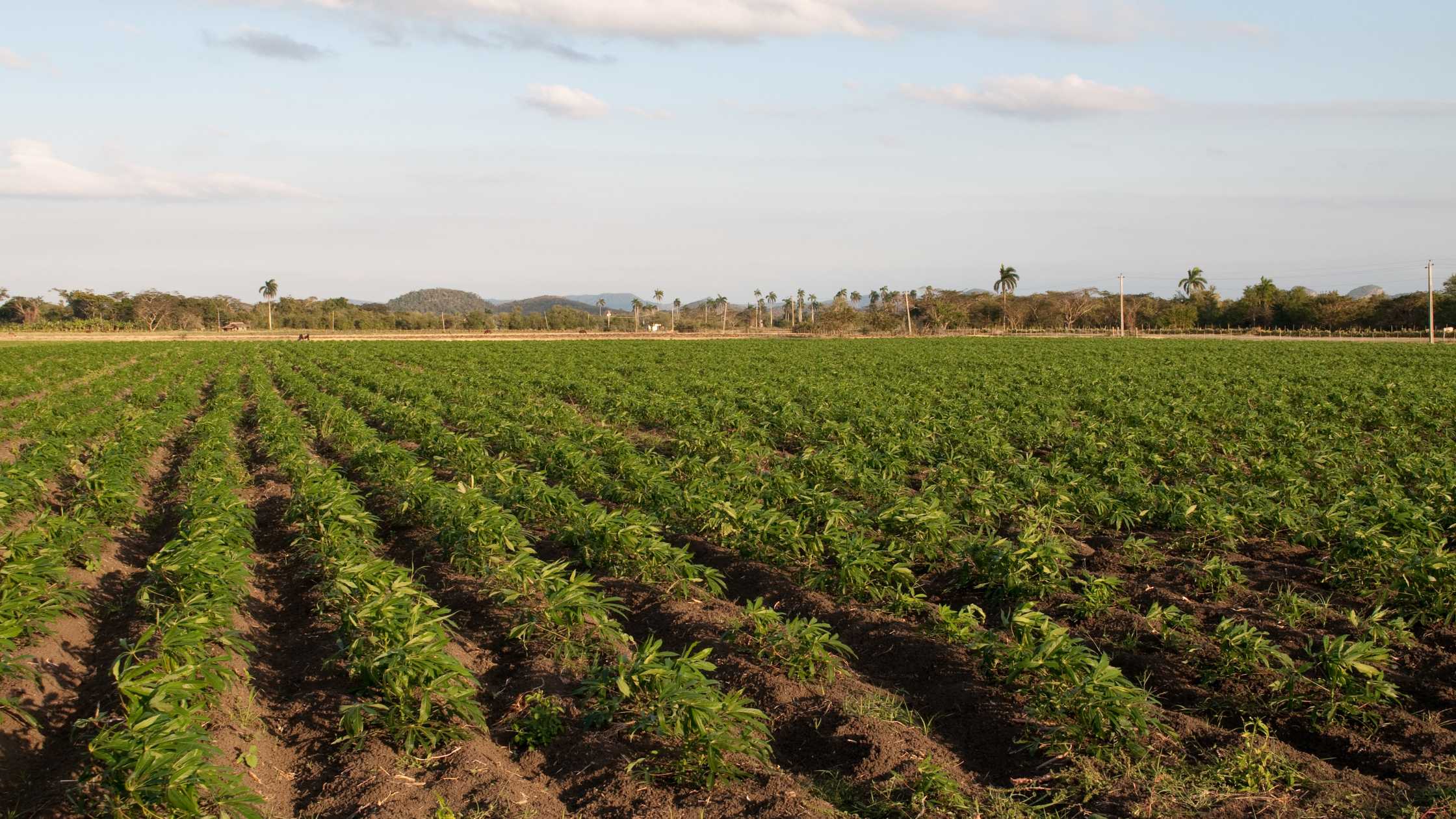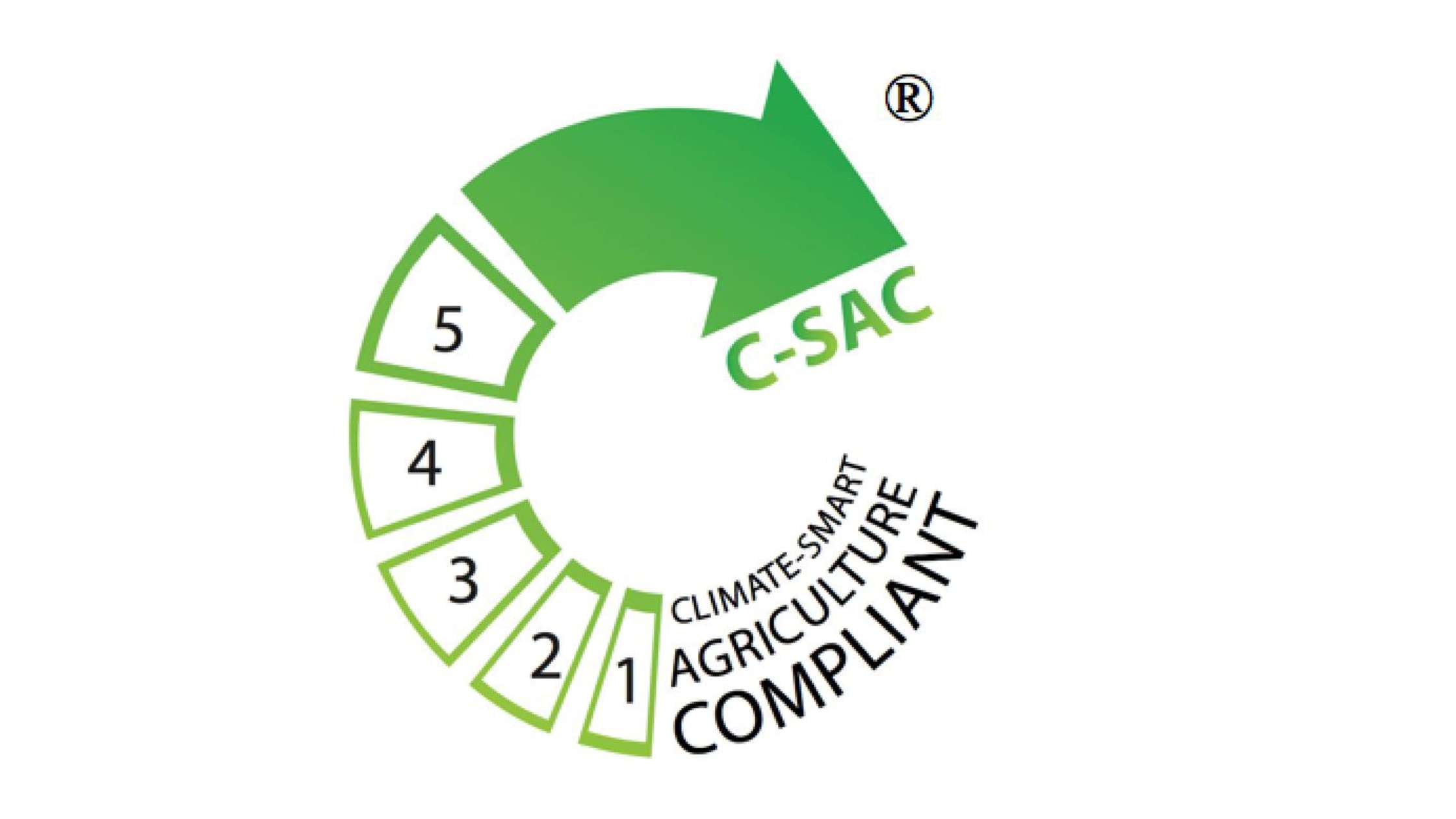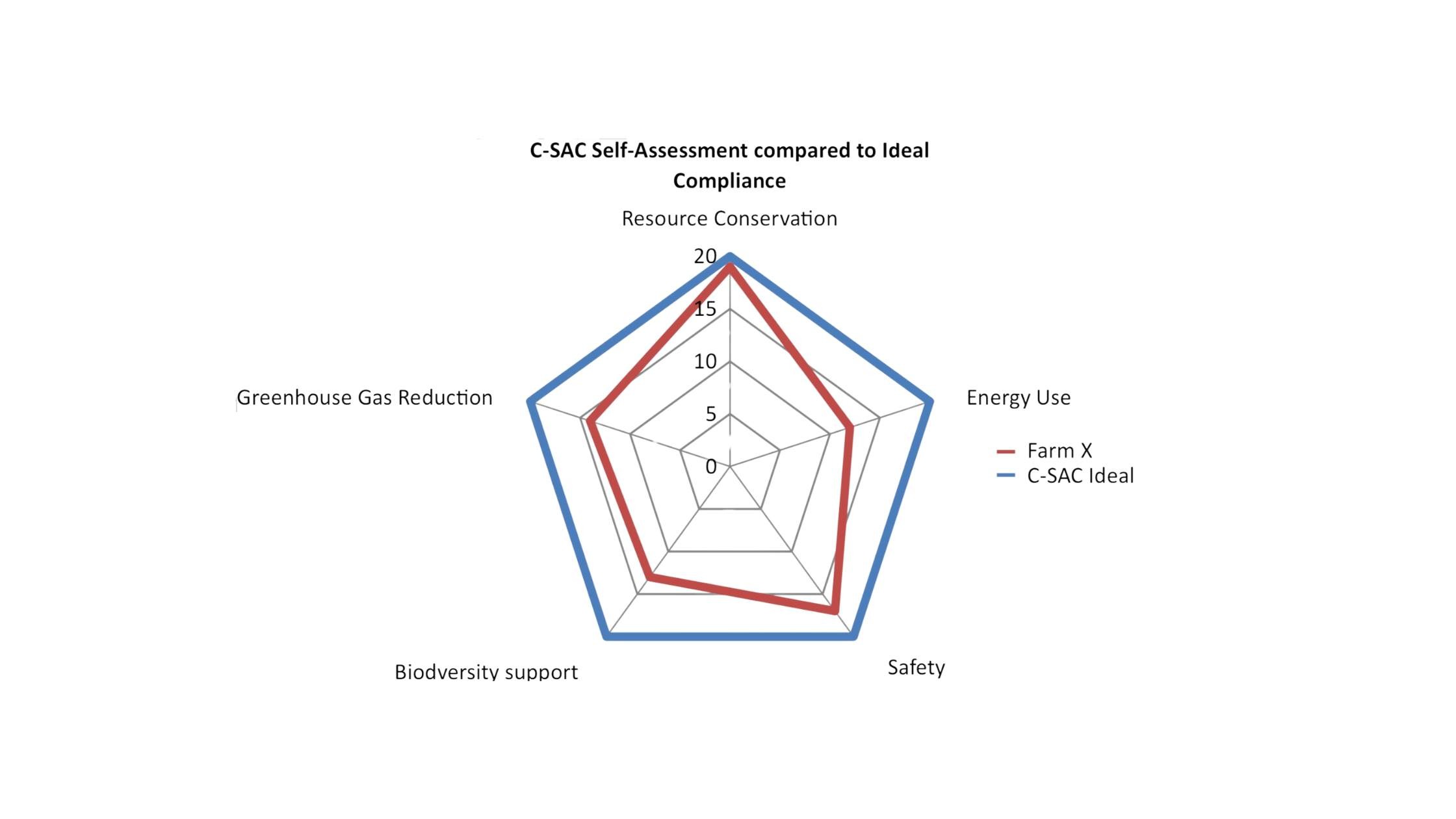
20 Apr Maximising Agricultural Resilience: The C-SAC® Tool Revolutionising Climate-Smart Farming in the Caribbean
The impacts of climate change on the Caribbean have become undeniable in the last decade, with many Caribbean countries experiencing a myriad of challenges. St. Lucia has grappled with diminishing freshwater levels, Barbados has witnessed escalating salt levels in its water sources, and flooding and longer heat waves have become more frequent across the region. Stronger natural disasters like hurricanes, changes in rainfall patterns, coastal erosion and rising sea temperatures have compounded these impacts.
One study showed that global farming productivity had lowered by 21% due to climate change and that the figures were higher in the Caribbean, Africa and Latin America. These environmental shifts have not only reshaped the way we live but have also significantly affected what we eat and how we grow our food. Just as we have to adapt to survive climate change, our food must adapt with us.
Climate-Smart Agriculture Expert Steve Maximay
Enter Steve Maximay, a Trinidadian climate-smart agriculture expert. As founder and managing director of Science-Based Initiatives Maximay has, for over 20 years, been at the forefront of initiatives in the Caribbean to enhance food production and nutrition security in the face of climate adversity.
Maximay’s journey to becoming a pioneer in climate-smart agriculture was not without its twists and turns. Trained as a plant and seed pathologist at the University of the West Indies, Maximay’s early career saw him traverse various roles, from the Agriculture Development Bank of Trinidad and Tobago to the esteemed halls of the Science and Agriculture Faculty at his alma mater. It was during these formative years that Maximay acquired a holistic perspective on agriculture, blending science, economics, business, and the critical dimension of climate change.
Along the way, he crossed notable milestones, including contributions to the Caribbean Risk Management Guidelines for Climate Change Adaptation Decision-making in 1998 and involvement in developing Trinidad and Tobago’s intellectual property policy in 2003. However, it was the signing of the Paris Agreement in 2015 that sparked Maximay’s resolve to develop a comprehensive tool for climate-smart agriculture.
The Climate Smart Agriculture Compliant (C-SAC®) Tool
The Food and Agriculture Organization states that climate-resilient agriculture should aim to “sustainably increase agricultural productivity and incomes, adapt and build resilience to climate change and reduce and/or remove greenhouse gas emissions, where possible.” But Maximay takes those goals even further with his pioneering invention, the Climate Smart Agriculture Compliant (C-SAC®) tool. Launched in 2016, and developed by a native Caribbean expert for a regional context, C-SAC® stands as a beacon of hope for farmers facing the daunting challenges posed by climate change. At its core, C-SAC® embodies Maximay’s simple yet profound definition of climate-smart agriculture: “an approach to farming that will help us survive climate change.”
The C-SAC® tool, also available as an app, offers a structured approach to assessing climate-smart compliance across five crucial categories: resource conservation, biodiversity enhancement, safety, energy use, and greenhouse gas reduction. Through a series of self-assessment questions, farmers can gauge their operations’ level of compliance, with scores ranging from level 1 to level 5, indicating varying degrees of adherence to climate-smart principles.
Maximay’s motivation to develop the C-SAC® tool stemmed from a profound understanding of the complexities surrounding agricultural development in the Caribbean. Recognising the influx of projects proposed by external entities seeking to capitalise on climate funding, Maximay was driven by a desire to ensure that initiatives truly embodied climate-smart principles. He foresaw the potential for greenwashing—presenting projects as environmentally friendly while lacking genuine sustainability—and sought to prevent it through rigorous assessment and auditing.

Climate-smart Agriculture Certification
What sets C-SAC® apart is its ability to provide more than just a final score. A visual representation highlights specific areas where improvements can be made, empowering farmers to identify and address vulnerabilities in their operations. Maximay’s vision extends beyond mere assessment; C-SAC® is on the verge of becoming a certification mark for agricultural produce, promising to revolutionise market access for climate-smart products.

The impact of Maximay’s innovation extends far beyond Trinidad and Tobago, with the C-SAC® tool gaining traction across the Caribbean region. Through initiatives like the Partnership Initiative for Sustainable Land Management, agriculture extension officers in countries like Grenada, Guyana, and Antigua and Barbuda have been trained to use C-SAC®, with plans for expansion to Barbados, Jamaica, and St. Lucia in the coming months.

In Maximay’s vision, C-SAC® represents more than just a tool; it embodies a paradigm shift towards resilient, sustainable agriculture in the Caribbean. By equipping farmers with the knowledge and resources to adapt to a changing climate, Maximay’s legacy is not only safeguarding livelihoods but also fostering a brighter, more sustainable future for generations to come.
As the Caribbean region continues to grapple with the impacts of climate change, Maximay’s pioneering spirit serves as a guiding light, illuminating the path towards a more resilient agricultural sector. With the C-SAC® tool leading the charge, farmers across the Caribbean are empowered to weather the storm, one sustainable harvest at a time.

